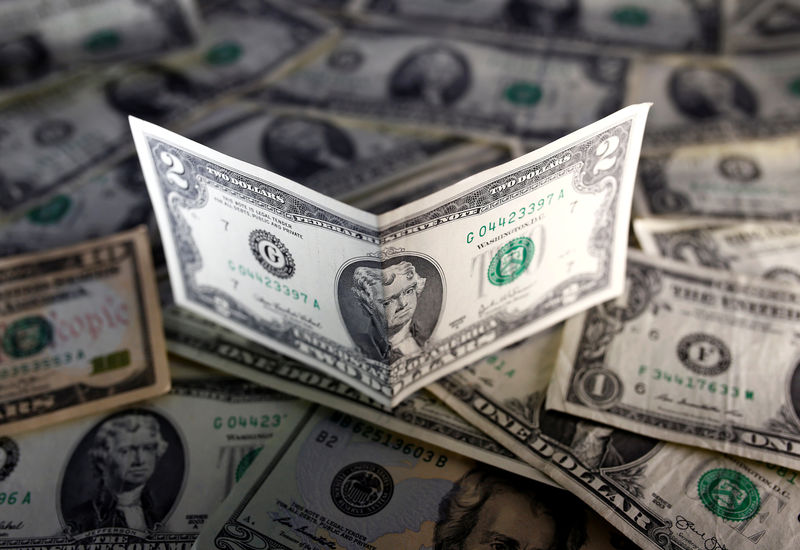Investing.com - Interest rate calls by the Federal Reserve and the European Central Bank will keep investors preoccupied this week, along with a U.K. general election that will determine the course of Brexit. Markets will also be watching for headlines from U.S. President Donald Trump's global trade war ahead of the looming Dec. 15 deadline for a fresh tranche of U.S. tariffs on Chinese imports.
The U.S. dollar rose on Friday, snapping five straight days of losses, as data showing the U.S. economy created far more jobs than forecast in November underlined expectations for the Fed to hold steady after cutting rates three times this year.
“We suspect the large majority of the (Federal Open Market) Committee will be comfortable projecting no change for policy rates in the year ahead,” Michael Feroli, chief U.S. economist at JP Morgan, wrote in a research note.
Gains in the dollar remained modest despite the robust jobs number, however. The greenback had been pummeled earlier in the week due to a slew of dismal figures on private payrolls, services, manufacturing, and construction spending, all of which indicated that the economy is slowing.
Friday’s jobs report provided a respite from all the pessimism and from the continuing uncertainty over the status of U.S.-China trade negotiations.
The dollar still posted its worst weekly percentage loss in more than a month despite Friday’s gains.
“No question today’s jobs report is strong but is it strong enough for people to change their views about the economy?” said Marc Chandler, chief market strategist at Bannockburn Global Forex in New York.
“I still think the U.S. economy is weakening and I don’t think today’s number is going to change people’s expectations for Q4 GDP (gross domestic product),” he added.
The U.S. dollar index was up 0.3% to 97.64 in late trade. For the week, the index was still down 0.6%, its largest weekly loss since early November.
The dollar was down 0.1% against the yen at 108.57, posting its worst weekly performance in nearly two months.
The euro was at 1.1057 late Friday, down 0.4%.
Sterling edged down to 1.3135. The British pound surged to a two-and-a-half year high versus the euro as traders grew more confident that the uncertainty over Brexit would end soon.
Ahead of the coming week, Investing.com has compiled a list of significant events likely to affect the markets.
Monday, December 9
Japan - Revised GDP
Germany - Trade balance
Euro zone - Sentix investor confidence
Canada - Housing starts, building permits
Tuesday, December 10
U.K. - GDP, manufacturing production
Germany - ZEW economic sentiment
Wednesday, December 11
U.S. - CPI, Fed interest rate announcement and press conference with Jerome Powell
Thursday, December 12
Switzerland - SNB interest rate announcement and press conference
Euro zone - ECB interest rate decision and press conference with Christine Lagarde
U.S. - PPI, initial jobless claims
Friday, December 13
U.S. retail sales; New York Fed President John Williams to speak
--Reuters contributed to this report
